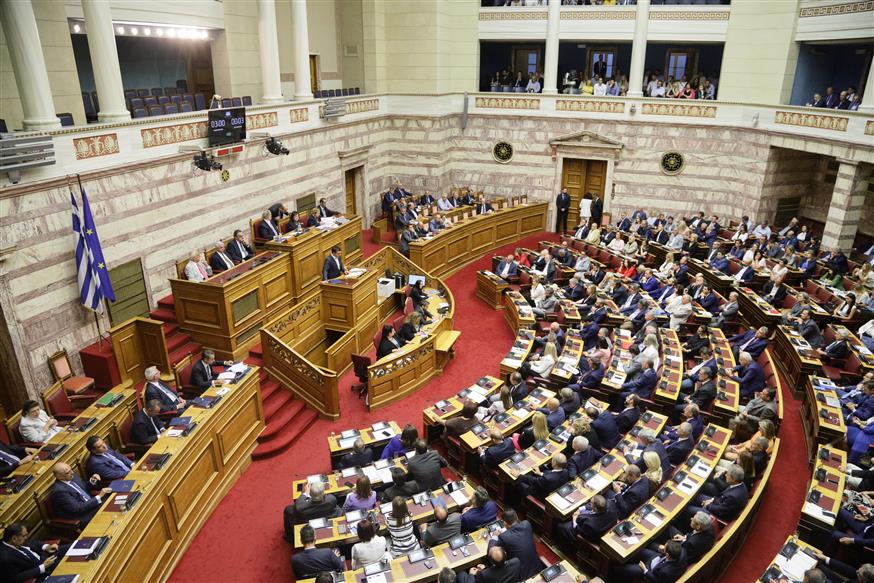Debate on bill including university asylum, regional administration started at the parliament plenum
The bill, which was posted for public consultation until August 2, will be processed on a fast track, with voting to take place on Thursday🕛 χρόνος ανάγνωσης: 2 λεπτά ┋

The debate on the interministerial bill which includes, among others, the abolition of the university asylum and changes in regions and municipalities' governance opened at the parliament plenum on Wednesday.
The bill, which was posted for public consultation until August 2, will be processed on a fast track, with voting to take place on Thursday.
Concerning the city councils, the bill tries to resolve an issue arising from the new electoral law, under which a mayor may not have a majority in the city council, resulting in a deadlock over any new plan or decision. The bill allows two or more city parties on city councils or regional district councils to work as a coalition as long as one of the parties is that of the mayor or regional director, respectively. The coalition will act as a single entity and will be able to move on decisions and to appoint staff to local-level offices.
These regulation, the bill explains, were necessary in order to guarantee that in 231 city councils in Greece and seven regional areas will be administratively operational.
In terms of the academic asylum, the regulation that abolishes academic asylum posted for public consultation was as follows:
"Academic freedoms - Upgrading the quality of the academic environment:
- At higher educational institutions, academic freedom in research and teaching is guaranteed and protected as an institutional guarantee of independent and inviolable scientific thought, research and teaching.
- Academic freedom and the free expression and circulation of ideas are protected on all higher education premises, against anyone who tries to tear them down or restrict them.
- Within the premises of higher education institutions, relevant authorities exercise all their jurisdictions accorded by law, including intervention because of criminal offences".
In the existing law, state or public authorities may intervene "in cases of crimes and crimes against life, on its own motion," i.e. without an individual having to file a motion against another person, "and in any other case, following a decision of the dean's council. The above restrictions do not bind the Fire Brigade".
Αποτροπιασμός: Καταγγελία για βιασμό 25χρονης ΑμεΑ στην Κυψέλη - Μπήκε στο σπίτι τους
Τουλάχιστον τρεις νεκροί μετανάστες από το ναυάγιο στην Κρήτη - Πάνω από 20 οι αγνοούμενοι
Φωτεινή Βελεσιώτου στο ethnos.gr: «Στην κακοποίηση δεν σώπασα ποτέ»
Αυτή είναι η τουρκική σημαία που εκατοντάδες Έλληνες θυσιάστηκαν για να την υποστείλουν στη μάχη του Μπιζανίου
Live όλες οι εξελίξεις λεπτό προς λεπτό, με την υπογραφή του www.ethnos.gr
 δημοφιλές τώρα:
δημοφιλές τώρα: 



